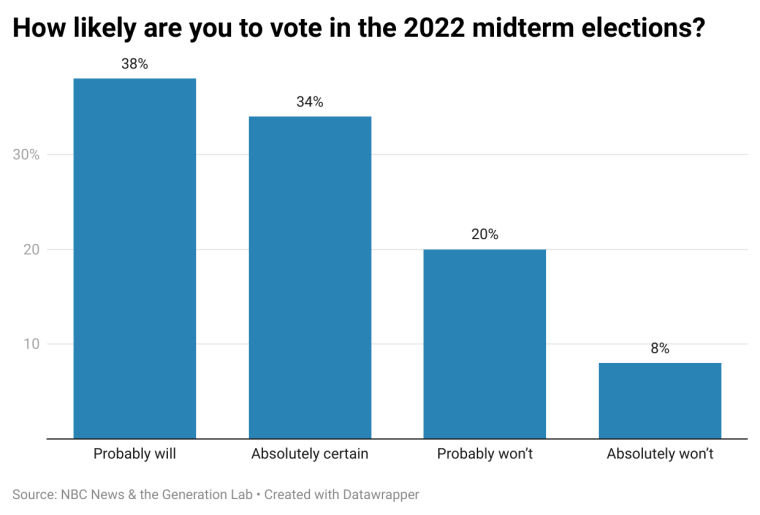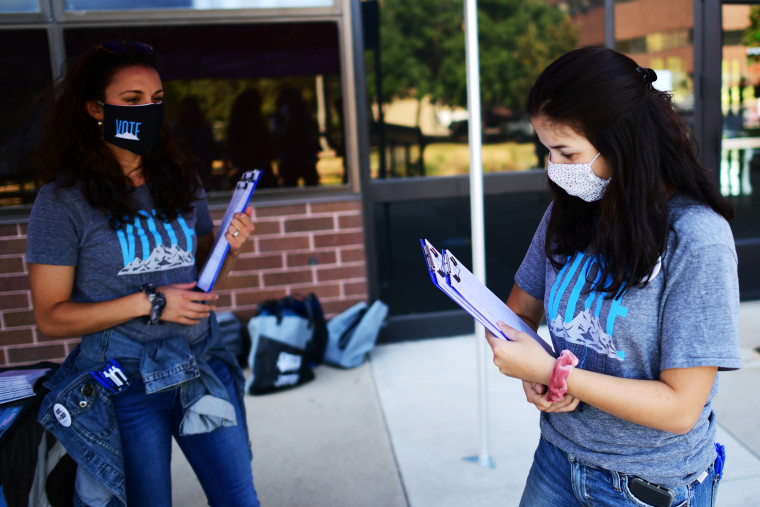Here's another set of numbers from the online NBC News/Generation Lab poll of college students: 34% of the respondents say they’re “absolutely certain” to vote in the 2022 midterm elections, while another 38% say they “probably will.”
“Without a doubt, I will be voting in the upcoming election,” said Jordan Scott of the University of Southern Mississippi. “It is so important to vote and have your voice heard. Voting is one of many ways to fight for change in this country.”

By contrast, a combined 28% in the poll say they “probably” or “absolutely” won’t vote in November.
“I honestly do not have the time to stay up to date with everything political anymore,” said Caitlin Altmann of Erie County Community College in Buffalo, N.Y. “I know how important it is to the future of this country, but I feel there’s always so much going on that I miss.”
“I don’t feel confident enough to choose who to vote for,” Altmann added. “It may sound like pure ignorance to the political side of life, but I am too focused on my personal life/schooling to stay up to date.”
If the 34% of second-year college students who say they will vote in the midterms holds for all students, it would surpass the estimated 19% of college students who voted in the 2014 midterms, according to a study from Tufts University.
And it would be close to the 40% of college students who turned out in 2018.
The NBC News/Generation Lab poll was conducted Aug. 12-17 of 1,077 rising college sophomores — from either two- or four-year institutions — and it has an overall margin of error of plus-minus 3.3 percentage points.


